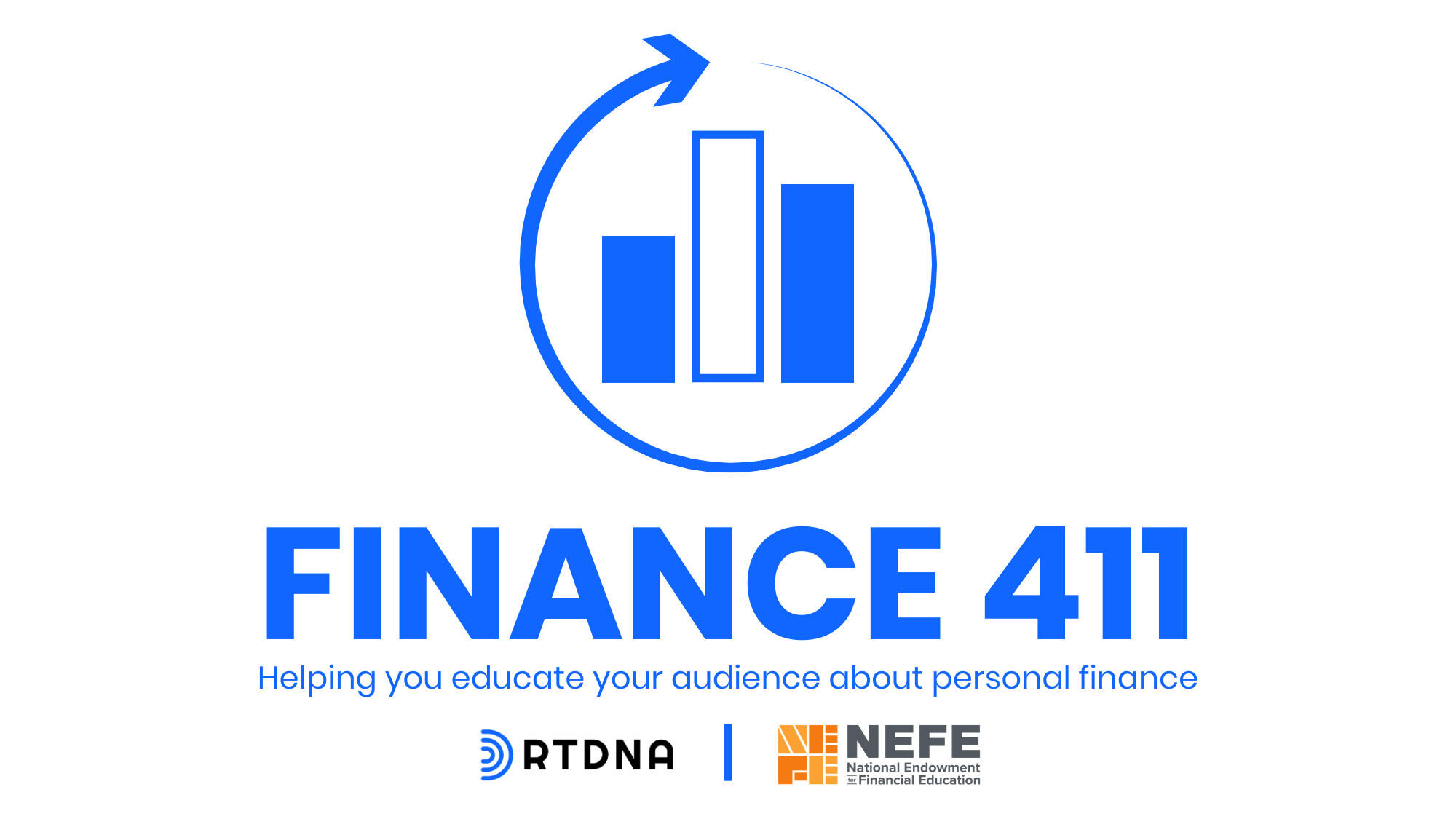Money Matters: 5 reasons to make more of your stories about money
Date postedJuly 13, 2018

You don’t have to have “consumer reporter” in your title to report on money stories. In fact, consumer and personal finance topics are great for any general assignment or beat reporter to pitch regularly.
Why?
1) Money affects everyone.
“It’s important to talk about these issues because everything we deal with day in and day out, it’s all about personal finance- it’s all about your money,” said 2017 RTDNA/NEFE Award winner Michelle Mortenson. Whatever beat you primarily report on – health, education, crime – there is a money angle to nearly every story you do. Money can be a source of worry, security or conflict, but, regardless of the demographics of your audience, money stories touch everyone.
2) There is an abundance of misinformation and often a lack of education when it comes to money.
Money matters can be complex and confusing. There are whole industries of professionals dedicated to helping people figure money issues out. When trusted sources like local news outlets provide regular coverage of finance topics, audiences become better educated and able to make informed decisions about their money.
3) Learning more about managing money is good for you too. “I take personal finance reporting very seriously and even though my title may not say I’m a personal finance reporter, I like to do stories that interest me and that will benefit me in the long run, therefore I need to know how to save money,” said 2017 RTDNA/NEFE Award winner Leoneda Inge. Whether you’re looking for a good second job, trying to get a better mobile data deal or dealing with student debt, it’s likely people in your coverage area are too! Put your own research to good use.
2017 RTDNA/NEFE Award winner Richard Eisenberg did, with a story on the challenges of divesting belongings following a family member’s passing. “[This story] came out of personal experience, as a lot of personal finance stories do, he said. “If we’re living through this, I bet a lot of other people are, too.”
4) There are so many stories to do.
Not sure how to get started finding consumer stories?
“Think about what is on your mind right now, what’s in the news, and what you wish you had the answer to, because chances are there are other people who want to know that too. And there are a lot of really important financial stories that have a personal finance angle, but that’s not covered very often. Think about how can I take this and make it personal? There’s usually a way, and people are really grateful when you do,” Eisenberg says.
5) Money stories make a difference.
Money stories don’t have to be dry reports on economic numbers, or lectures on the finer points of tax law. At their best, money stories can get your audience involved and really make a difference in people’s lives. Just look at “Show us Your Bills,” a KUSA National Murrow Award-winning investigative news series. The project, which originated as health story looking into ER practices, has saved Denver-area consumers more than $275,000 in improper or erroneous medical bills just by asking people to submit suspiciously high medical bills, and has outlined steps others can take when they believe bills may be incorrect.
